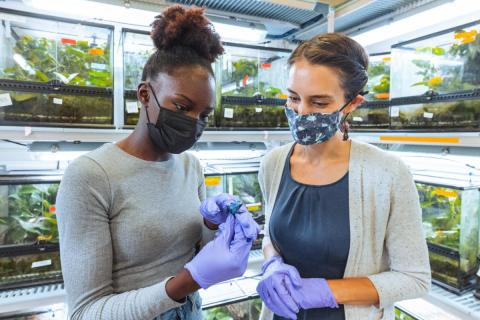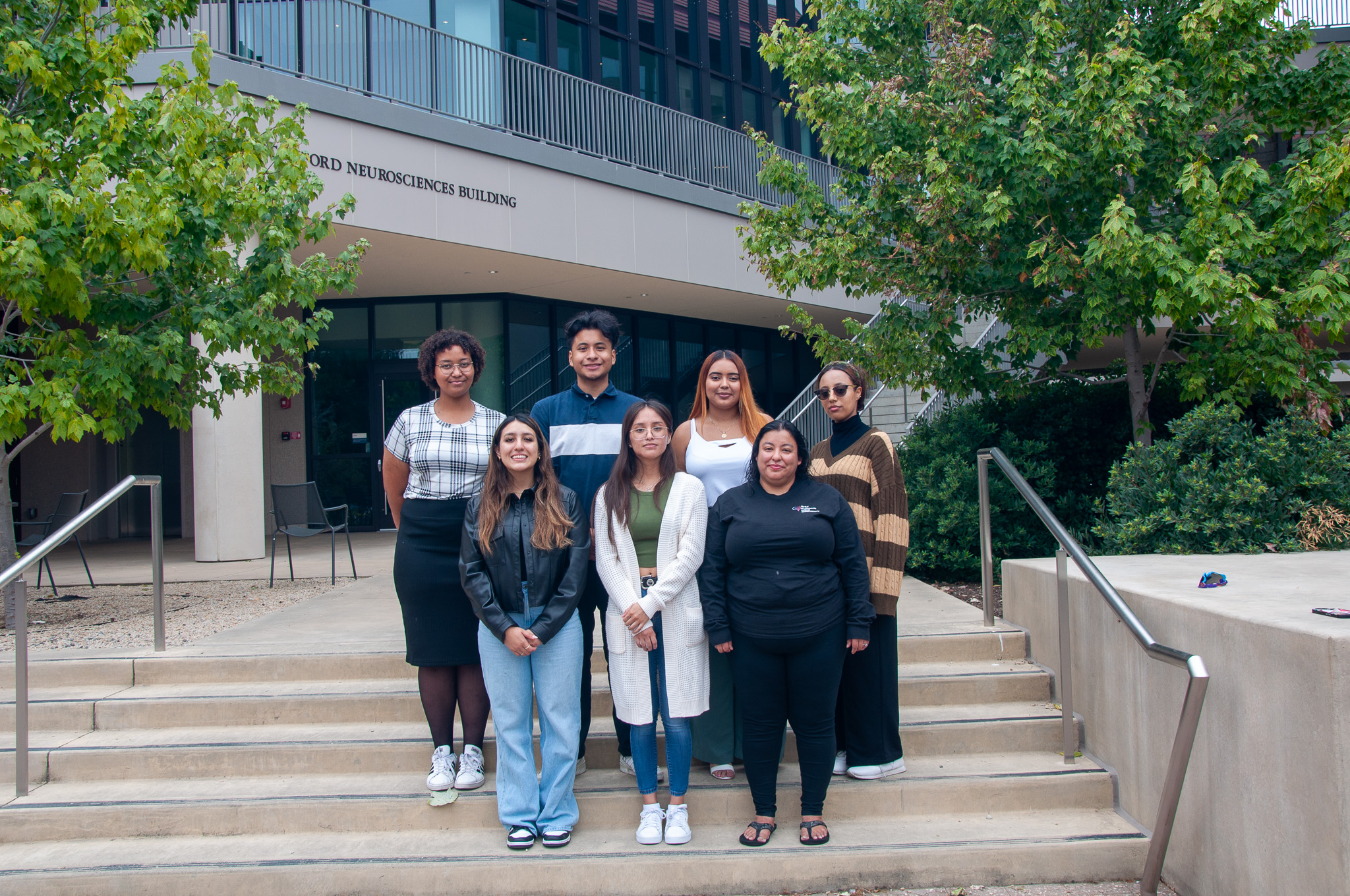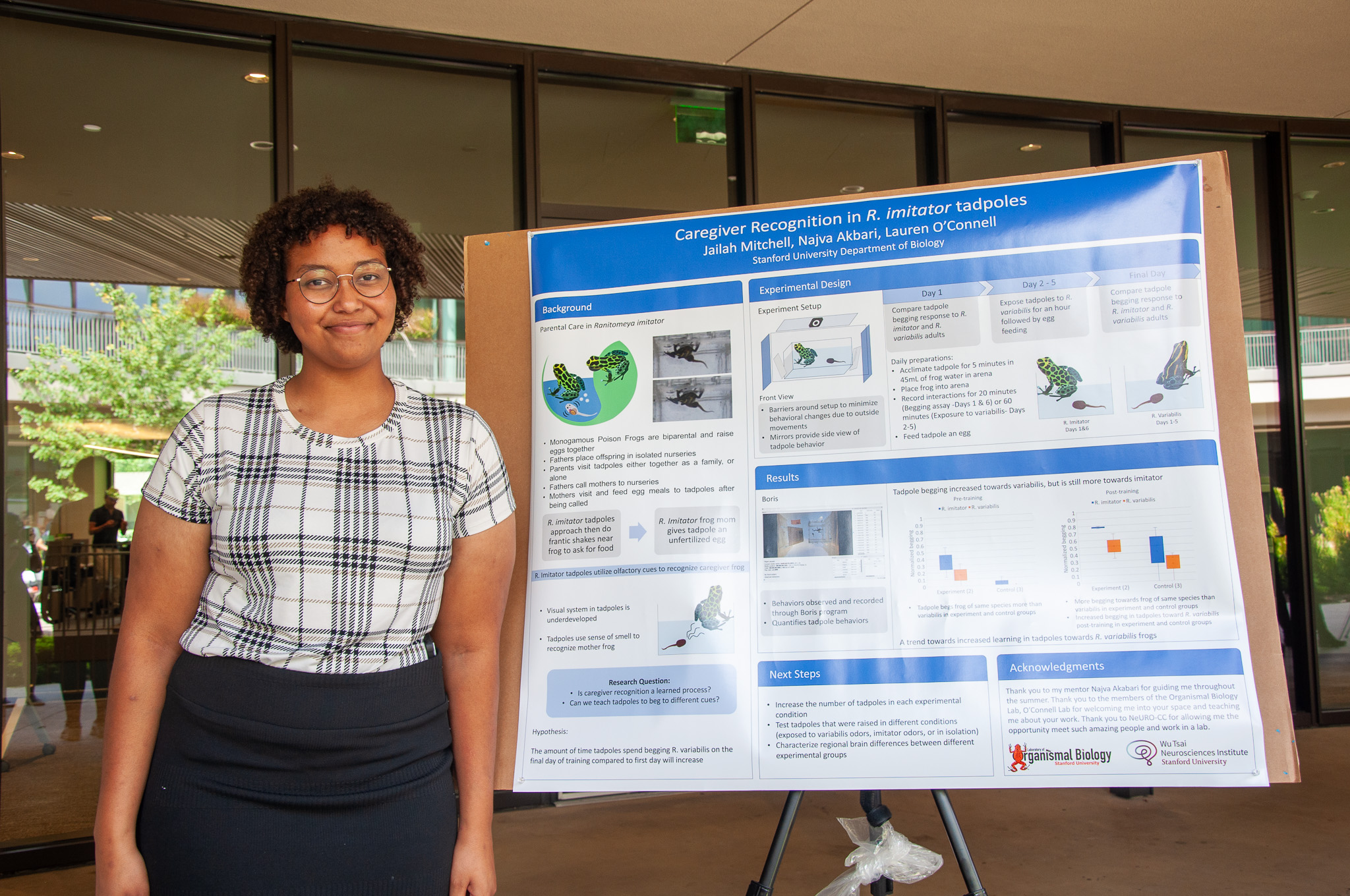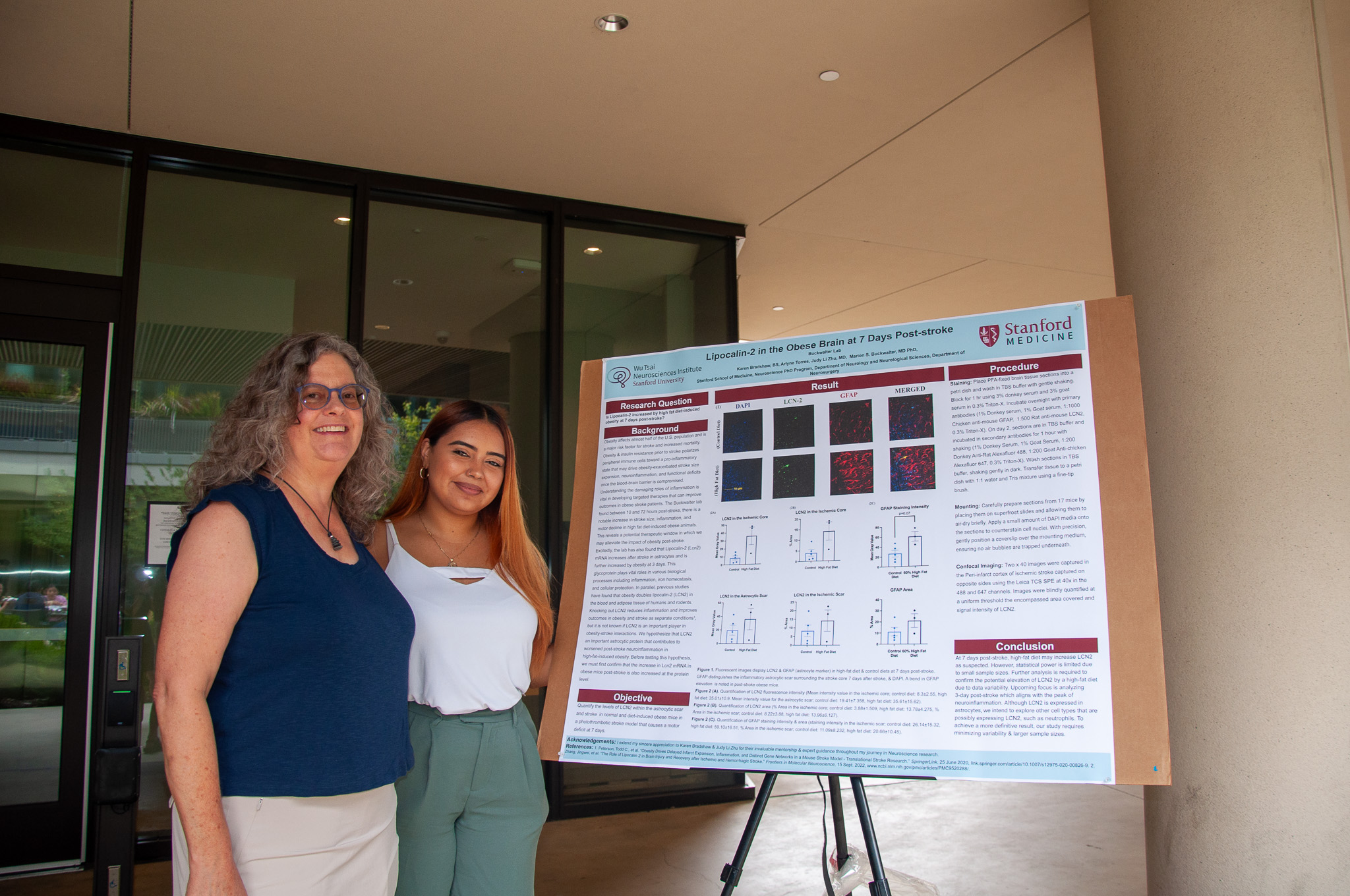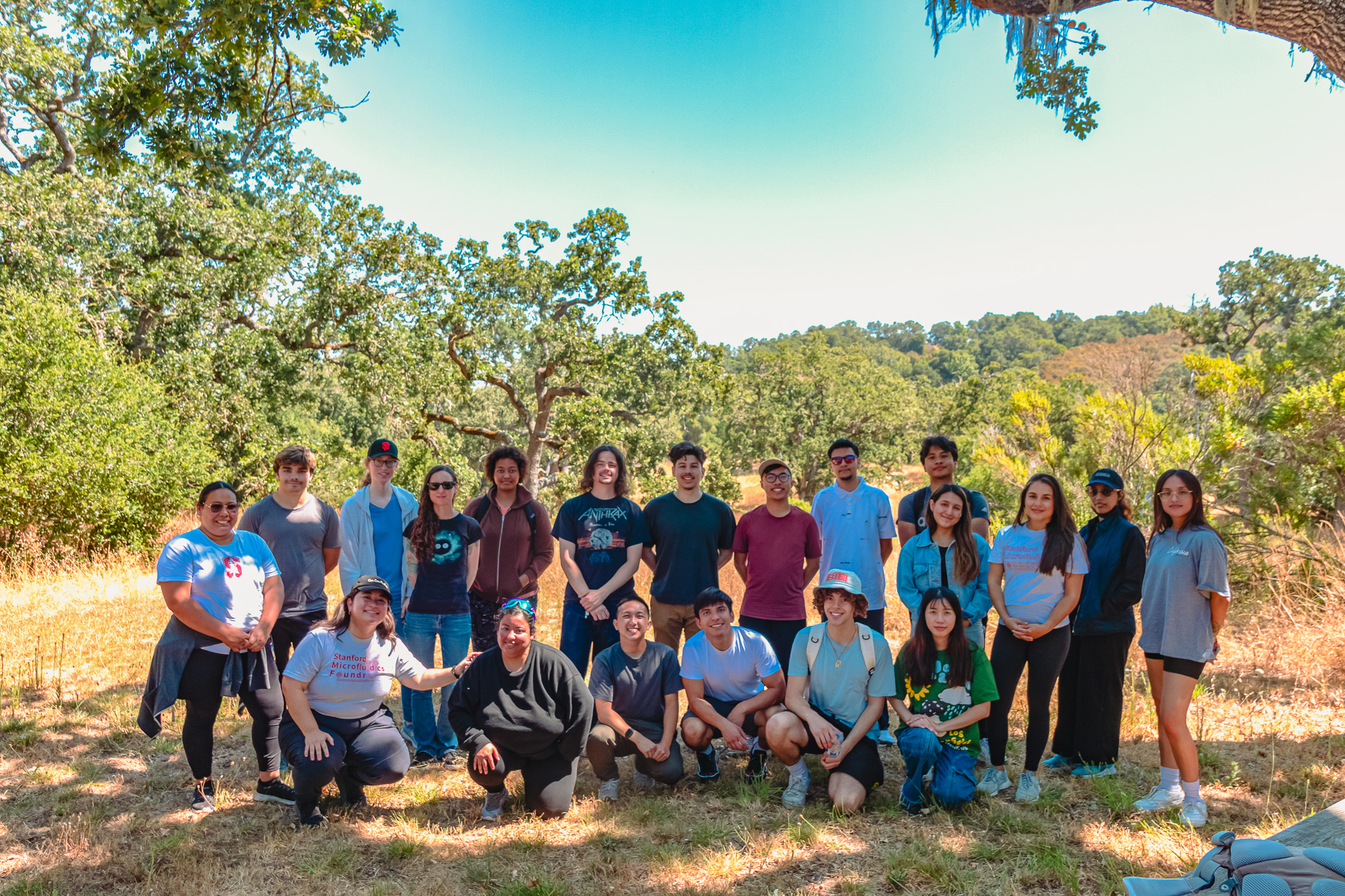Community college students from the local DeAnza, Foothill, and Mission Colleges delve into the world of neuroscience research through our Neuroscience Undergraduate Research Opportunity-Community College (NeURO-CC) fellowship.
Community college students with little to no previous research experience get introduced to scientific research by joining a neuroscience laboratory at Stanford and doing research full-time during the summer. NeURO-CC fellows further develop important skills through professional development workshops and community-building events.
As NeURO-CC fellows, community college students help advance our institute’s efforts to understand how the brain works in health and disease.
Meet the latest cohort and alumni
NeURO-CC is the sister program to NeURO, which supports Stanford undergraduates. Learn more about NeURO
Be a NeURO-CC Research Mentor!
Stanford neuroscience graduate students, postdocs, and research staff—share your expertise and inspire the next generation of scientists by becoming a NeURO-CC research mentor! Mentors play a pivotal role in the program, meeting regularly with their fellow to discuss progress, analyze results, and prepare a poster for the end-of-program session. Join us in making an impact—apply now to be a mentor!
Applications are open and will close on February 15, 2026.
Fellowship Program Elements
NeURO-CC fellows enroll in a paid eight-week summer experiential learning program, joining a wonderful community of undergraduates interested in exploring neuroscience, including Stanford undergraduate students in the NeURO program.
NeURO-CC fellows participate in:
- Eight weeks of full-time (40 hrs/week) research in a Stanford lab during the summer (early July-late August)
- Skill-building workshops to enhance their scientific, research, and professional development
- A poster session to present their research accomplishments at the end of the program
Read about our 2023 NeURO-CC poster session here.
NeURO-CC Fellows Nominations Process
There is no application for the NeURO-CC program. NeURO-CC fellows get selected through a nomination process involving administrators of the learning communities at DeAnza, Foothill, and Mission. Specifically, NeURO-CC is only open to nominated students from the Puente, Umoja, and MESA programs at these community colleges.
The Wu Tsai Neurosciences Institute staff pairs the nominated students with Stanford research mentors for their full-time neuroscience summer research experience.
If you are a DeAnza, Foothill, or Mission student and want to learn more about the nomination process at each college, contact the corresponding representative (see NeURO-CC Program Contacts below).
NeURO-CC Research Mentors
Stanford graduate students, postdocs, and research staff in neuroscience laboratories can host a NeURO-CC fellow in their lab and become research mentors.
NeURO-CC research mentors design a research project for the fellow and are responsible for the day-to-day mentoring, guidance, and management of the student. They meet regularly with their assigned fellow, establish expectations, explain and teach protocols and techniques, discuss results, and help them make a poster for the end-of-program poster session.
Prospective research mentors should confirm with their faculty advisors that they're willing to host a community college undergraduate student before applying to the program.
NeURO-CC Mentor Applications
We welcome research mentors (graduate students, postdocs, research staff) doing neuroscience research in all fields (e.g., biology, engineering, computer science, et al.) to host a NeURO-CC student in their lab for the summer. Interested faculty advisors should identify a research mentor in their lab and have them apply.
Learn More
Have questions about the NeURO-CC program that aren't answered here? Check out our FAQ (Frequently Asked Questions) below.
NeURO-CC Program Contacts
For questions regarding the program structure and administration, students can reach out to Zulema Garibo Gonzalez, Training and Fellowships Program Coordinator, at zgaribo@stanford.edu.
For questions regarding eligibility and nomination, students should contact their respective representatives of the MESA, Puente, or Umoja programs at their community college:
| College | Contact Name | Role/Title | |
|---|---|---|---|
| Foothill College | Maritza Jackson Sandoval | Puente Counselor and Program Coordinator | jacksonsandovalmaritza@fhda.edu |
| Foothill College | Dokesha Meacham | Umoja Counselor | meachamdokesha@fhda.edu |
| Mission College | Edrina Rashidi | MESA Program Director & LAEP Co-Director | edrina.rashidi@missioncollege.edu |
| DeAnza College | Yvette Alba-Campbell | MESA Program Director | campbellyvette@fhda.edu |
"The NeURO-CC program has given me the opportunity to learn how to conduct my own research by understanding experiments and the equipment… among many other important factors. I think it's important that I'm able to get this exposure and experience now as a NeURO-CC student, so I can use what I learn in school as a STEM student and for my future career."
— Jailah Mitchell, Summer 2023
“Being part of this program made me understand the process of protocol, procedure, and analysis when it comes to imaging in neuroscience. [It] made me more sure in what specifically in the medicine/research realm I want to focus on.”
— Anonymous, NeURO-CC Fellow, Summer 2023
"This program allowed me to get hands-on experience in the lab which clarified what exactly you do in a research career."
— Anonymous NeURO-CC Fellow, Summer 2023
